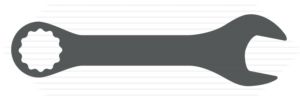What if every utterance of any person in the world could be saved and served to requestors forever?
Would that be a good thing? As you might surmise, the answer is not clear cut.
IPFS: the InterPlanetary File System is intended to replace HTTPS and de-centralize the content delivery process on the web. Rather than retrieving content based on its filename and a location, content is retrieved based on a cryptographic fingerprint, with copies of that content scattered across machines geographically distant from each other.
The Brave browser just introduced IPFS support as announced on the company's blog. It could be a game-changer for anyone who has seen their content disappear because of the decision of some third party. The nature of IPFS could insure the survival of any data for the rest of human history, at least in theory.
This latest mind-bending tech development that has the potential to change the way we view and value knowledge. It's just one more proof that nothing stays the same.
We have normally held that knowledge is power. Knowing a thing motivates us, empowers us and gives us confidence to plan, and to act. In the early days of physical books, the expense of getting knowledge into a book limited what might be printed there. Books that were deemed inappropriate could, and were, destroyed by those who opposed the ideas written within their pages.
You and I can really never know what knowledge has been eradicated from the human realm. It is gone. We can only know about those thoughts and words that were unsuccessfully attacked.
What will our view of knowledge be when all knowledge can always be preserved? The filters that humankind has historically applied to the accumulated works of homo-sapiens are about to be removed. We will be able to retrieve anything that ever made it into a digital file. Forever. At least in theory.
I think we will soon stop seeing knowledge as a good thing, and start seeing knowledge as a tool. And I'm not so sure this paradigm shift is a bad one. Isn't it actually more accurate to see knowledge as a tool? Hasn't the advertising and entertainment industries actually been using knowledge in that way for centuries now? What about politics and religion? Do they only put forth good knowledge, wholesome and uplifting, or are they guilty of subtly twisting knowledge to meet their own agendas?
Perhaps this will force those of us who are a bit too trusting to start exercising our mental muscles a bit more. Maybe the knowledge that everything we hear isn't the truth will become a thing everyone knows.
Now there's a thought.
